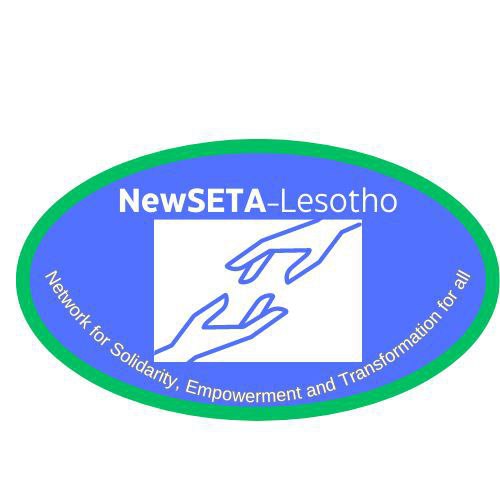

TRC awards NewSETA a subgrant to implement a public participation and accountability project
Problem statement
Corruption in Lesotho is exacerbating meanwhile citizens’ voter apathy is soaring hence political office bearers are left unaccountable. Transparency International 2021 index calculated for 179 countries from all continents shows Lesotho’s official score at 38 points in 2021. As the score increases, corruption decreases. The causes of corruption lie in part in political behaviour and cultural reasons including voter apathy and unaccountable leadership. Ineffective law enforcement may further promote it. Higher corruption is detrimental for a low-income country like Lesotho with a per capita income of 1,270 USD annually, which is extremely low by global standards. The cost of living is well below the global average, indicating massive socioeconomic problems which require urgent attention (WorldData.info 2021). The graph below shows the escalating corruption in Lesotho in recent years.
Figure 1. Lesotho’s escalating corruption in recent years

The voter turnout for Maputsoe urban area surroundings is quite low despite the rampant escalating corruption in the country yet voting is the main mechanism for the community to hold leaders accountable. For instance, in Maputsoe constituency for 7 October 2022 elections was 26.34% and Moselinyane 34.79%. Voter apathy in Maputsoe and surrounding villages hampers the electorates from holding political office bearers accountable and denies the community the chance to participate in significant political decision-making.
Maputsoe communities required sensitization to hold their leadership accountable for service delivery to improve. There was a need on part of Maputsoe urban community to understand the importance of voting, functions of the parliamentarians and councillors to hold them accountable. It was, therefore, expedient to educate them about their responsibilities and equip them with necessary skills to hold their leaders accountable for poor service delivery and corruption which cuts across the country. Equally, it was imperative to train the newly elected members of parliament of Maputsoe of their responsibilities given that it is their first time to parliament.
Methodology
The project goals were achieved through community outreach and workshops with intensive training. NewSETA developed training manuals and guidelines for the experts to train the community members, parliamentarians, and councilors. The content was tailored for each target group, describing its functions, responsibilities, and rights. The experts described the accountability mechanisms at the disposal of electorates for holding political representatives accountable and indicated the strategies the latter could adopt to hold service providers accountable. The training included community mapping, social network mapping, stakeholder analysis and proffering recommendations. The workshop brought together participants including the solicited experts and resource persons. The organizational staff were facilitators and presenters to complement the work of experts and resource persons. The workshop comprised morning and afternoon sessions where the former was characterized by presentation and the latter interactive exchanges. Besides the training manuals, participants took notes.
Geographical location of the implementation of the project
The workshop took place in the town of Maputsoe. However, the targeted constituencies and villages extended to the neighbourhoods of the entire town and its outskirts, covering 6 villages, namely, Ha-Masoto, Chonapase, Thellaboy, Likoting, Moselinyane and Thoteng. The project was implemented in Leribe district in Maputsoe and Moselinyane constituencies.
Project Objectives:
This project’s aims were threefold. First, it strived to sensitize Maputsoe community and its surrounding villages of their responsibilities and mechanisms at their disposal to hold their leaders accountable for poor service delivery. Second, the project sought to train the parliamentarians and councillors of their respective responsibilities and enhance their accountability to the electorate. Thirdly, the project endeavoured to bridge the gap between the electorate and political representatives by creating a platform for the latter to address issues of water scarcity, and escalating corruption.

How can we assist
We are here to help you with any




